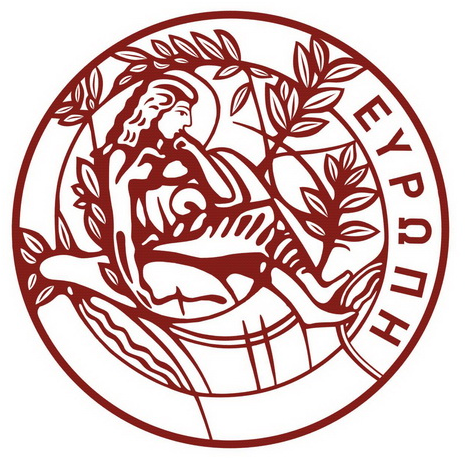Historical Background
The University
The University of Crete was established in 1973 and started functioning in the academic year 1977-78. As a higher education institution, it is a legal person of public law, i.e. it operates under the supervision of the State. The seat of the University is in Rethymnon. The organisation and administration of research are based on the principle of autonomy.
The supreme administrative body of the University is the Senate, which is presided by the Rector of the University. Head of the University is the Rector who is assisted by two Vice-Rectors in the exercise of his duties; all three form together the institution's high authority. They are elected for a period of there years by the teaching staff and the student body.
The University of Crete has 10628 students (8962 at the undergraduate level and 1666 at the postgraduate level), more than 600 Faculty members and researchers as well as approximately 240 administrative staff, in Schools and their Departments in the cities of Rethymnon and Heraklion.
At Rethymnon, the School of Letters comprises the Departments of History-Archaeology, Philosophy and Social Studies, and Philology. The School of Social Sciences comprises the Departments of Economics, Psychology, Sociology, and Political Sciences while the School of Education comprises the Departments of Primary Education and Pre-Primary Education.
At Heraklion, the School of Sciences includes the Departments of Biology, Chemistry, Computer Science, Mathematics & Applied Mathematics, Physics, and Materials Science and Technology. There is also the School of Medicine.
Although still very young, the University of Crete has already shown its commitment in the evolving European process. It is currently coordinating and participating in EU programs and activities such as ERASMUS, LINGUA, TEMPUS etc. and has important links and cooperations with other Mediterranean and Eastern Europe an countries as well as with many US Universities and Colleges, through international Programs.
The Department
The Department of Materials Science and Technology aspires to become a significant educational and development center of a high priority subject-matter for both Greece and the world, while meeteing the needs of the modern industry and therefore, of the economy. In addition, the Department monitors the evolution in the field of science and technology in a sector of a constant and rapid development on a medium and long-term base.
The very well organized departments of Physics, Chemistry, Biology and Medicine in the University of Crete, together with a personnel of international status, guaranteed the proper organisation of the new Department on a interscientific basis, as well as the function of the Department at its outset. We should note that the first 4 semesters of the most undergraduate curricula of Materials Science and Technology contain up to 40 didactic units (10-12 subjects) from fundamental mathematics, chemistry, physics and computers. The students of the new Department are educated in thermodynamics, kinetics, mechanical statistics, mechanics of solids, solid state physics, materials analysis techniques, etc., which are also required in the syllabi of other modern Departments. In addition, the labs in the department of Physics as well as the labs of the Foundation for Research and Technology (microelectronics, polymers, semiconductors, superconductors, surfaces, biochemistry, biomaterials, medical applications, laser applications for processing materials), are used for the training of undergraduate students. During the first years of its function, the Department is hosted in the buildings of the Physics, chemistry, and Biology Departments.
The Department of Materials Science and Technology supports our new dynamic Peripheral University promoting the University of Crete to become an Educational Center not only for Greece but for the entire Southeastern Europe, Eastern Mediterranean and Middle East. Our department is modern, dynamic and pioneering, worthy and, at the same time, complimentary to the already existing Departments of the School and of the University. Beyond the support of the other Departments towards the new Department during the first years of operation, the new Department contributes to the other Departments through new undergraduate and postgraduate classes offered to all students, and also through inter-departmental collaborations at the level of common research and postgraduate programmes. In addition, students of different Departments are able to continue their studies at a postgraduate level in the new Department.
As it was mentioned above, Material Science and Technology is a high priority field internationally. The continuous research activities are focused on the development of new materials through understanding the relation of formation - structure- processing - properties. The new Department promptly developed postgraduate studies in the field. The postgraduate programme leads to Masters Degree as well as Ph.D. The development of postgraduate studies was based on the experience of the organized postgraduate programs of the already existing Departments of the School and new postgraduate programs which recently operated in the framework of EPEAEK.
The Department enrolled its first 50 students in 2001-2002. Its graduate program commenced in 2003-2004. Lab training and lectures take place at the University campus in Voutes, Heraklion. Additionally, the research labs of FORTH (microelectronics, polymers, semiconductors, superconductors, surfaces, biochemistry, biomaterials, medical applications, laser applications for processing materials), are used for the projects of graduate students.


